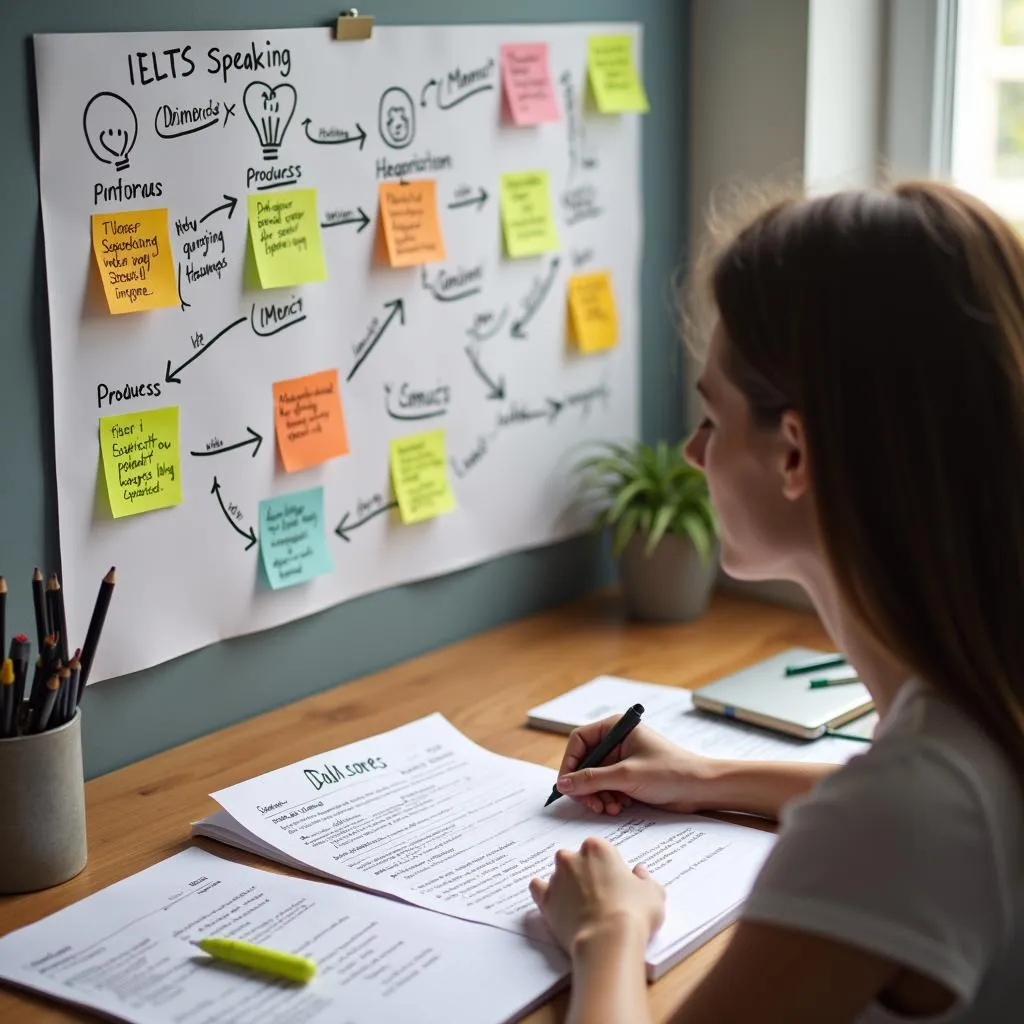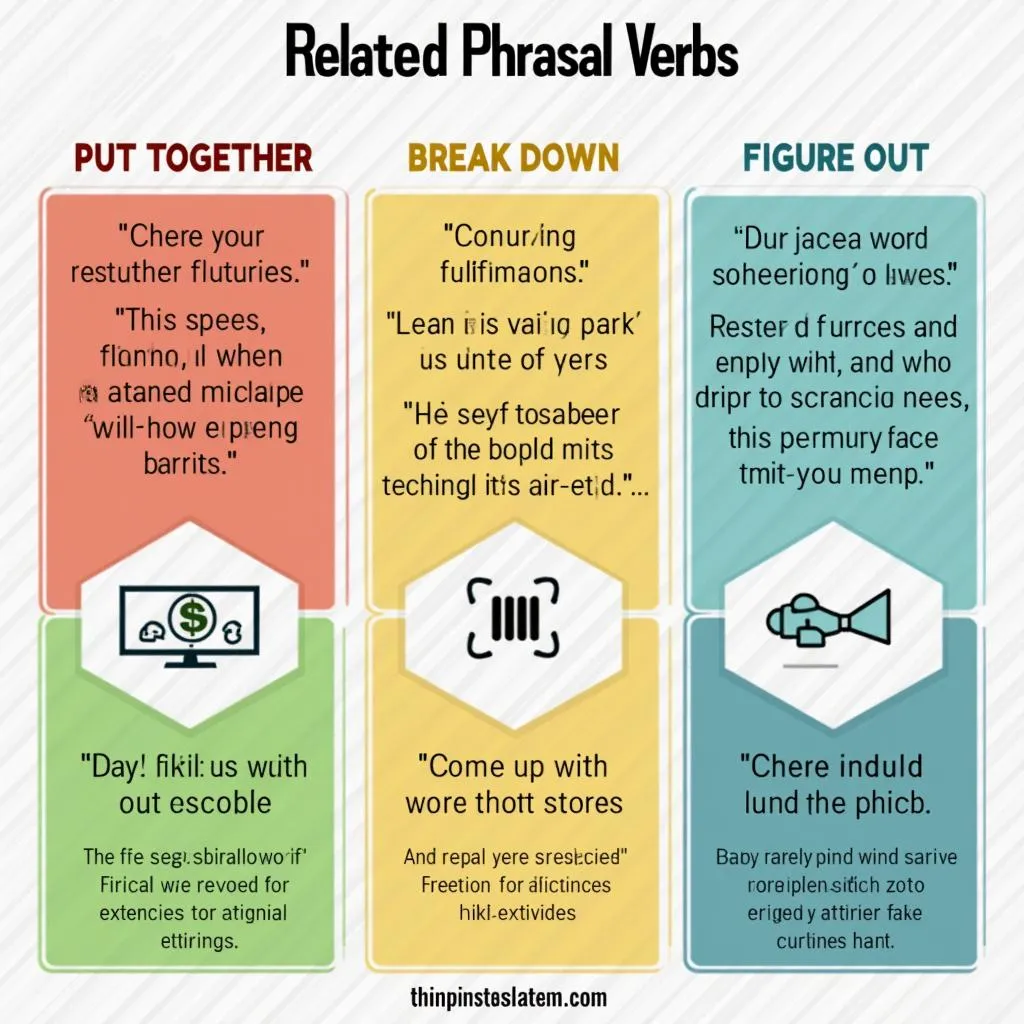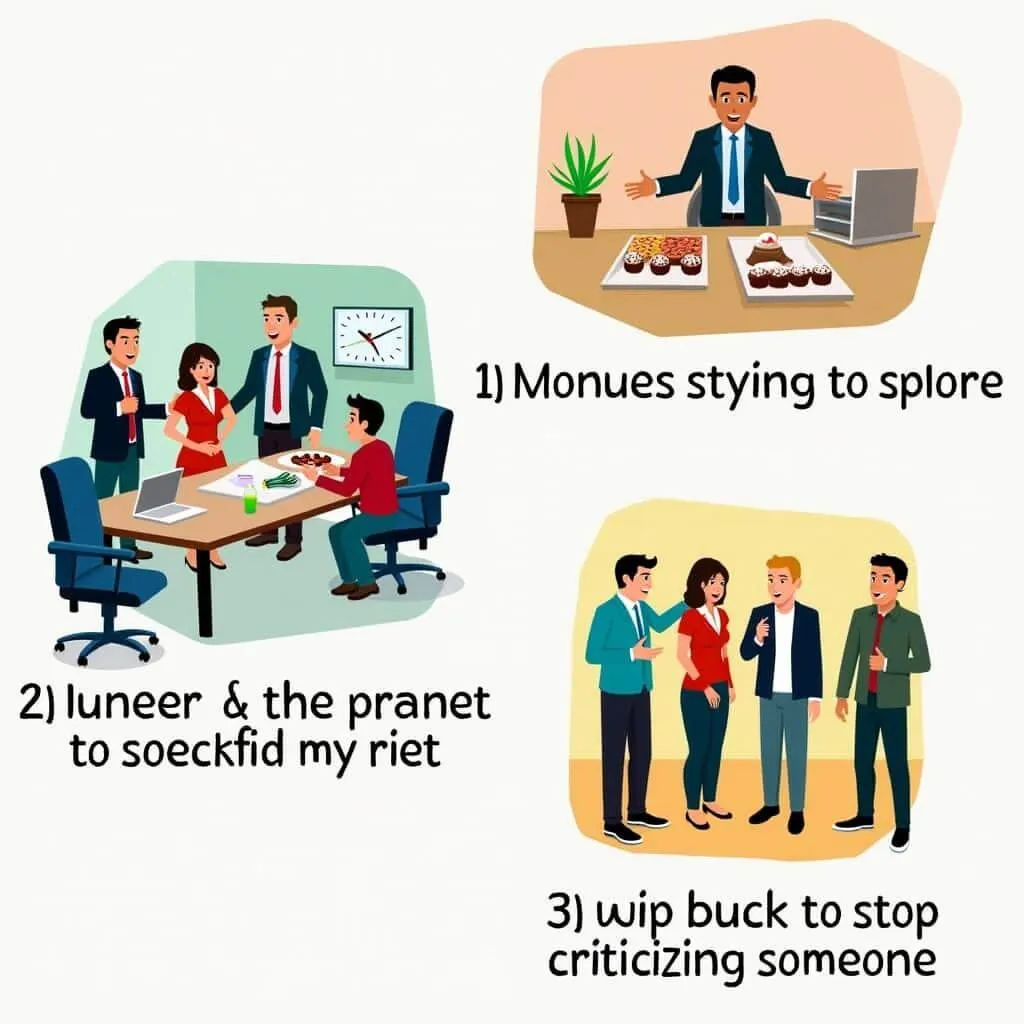Understanding ‘Piece Together’
‘Piece together’ is a crucial phrasal verb that IELTS candidates should master to enhance their language proficiency. This versatile expression can significantly improve your performance in both the Speaking and Writing sections of the IELTS test.
Nội dung bài viết
- Understanding ‘Piece Together’
- Definition and Explanation
- Contextual Usage
- Grammatical Analysis
- Applying ‘Piece Together’ in IELTS
- In IELTS Speaking
- In IELTS Writing
- Related Phrasal Verbs
- Practice Exercises
- Fill in the Blanks
- Sentence Transformation
- Answers and Explanations
- Memory Tips
- Common Mistakes and How to Avoid Them
- Conclusion
Definition and Explanation
‘Piece together’ means to assemble or reconstruct something from separate parts or pieces of information. It’s often used metaphorically to describe the process of understanding or solving a problem by combining various bits of information.
Synonyms include:
- Assemble
- Reconstruct
- Put together
- Figure out
Contextual Usage
Here are some examples of ‘piece together’ in different contexts:
- Formal: “The detective had to piece together the evidence to solve the complex case.”
- Informal: “I’m trying to piece together what happened at the party last night.”
- Written: “In her research paper, she pieced together information from various historical sources.”
- Spoken: “Can you help me piece together this puzzle? I’m stuck!”
Grammatical Analysis
‘Piece together’ is a separable phrasal verb. This means you can place the object between ‘piece’ and ‘together’ or after ‘together’.
- Correct: “She pieced the story together.” or “She pieced together the story.”
- Incorrect: “She pieced together it.”
 Piecing together information for IELTS Speaking
Piecing together information for IELTS Speaking
Applying ‘Piece Together’ in IELTS
In IELTS Speaking
‘Piece together’ can be effectively used in various parts of the IELTS Speaking test. Here’s how:
-
Part 1 (Introduction and Interview):
Q: “How do you usually plan your day?”
A: “I typically piece together my schedule the night before, considering my work commitments and personal tasks.” -
Part 2 (Cue Card):
Topic: Describe a time when you had to solve a problem.
“…I had to piece together information from different colleagues to understand the root cause of the issue…” -
Part 3 (Discussion):
Q: “How do historians reconstruct past events?”
A: “Historians often have to piece together information from various sources like artifacts, documents, and oral histories to create a comprehensive picture of the past.”
In IELTS Writing
In Writing Task 2, ‘piece together’ can add sophistication to your essay:
“To address complex global issues, policymakers must piece together insights from various fields, including economics, environmental science, and sociology.”
Remember to use this phrasal verb judiciously, as overuse might make your writing seem informal.
Related Phrasal Verbs
-
Put together /pʊt təˈɡeðər/: To assemble or construct something from separate parts.
Example: “We need to put together a strong team for this project.” -
Break down /breɪk daʊn/: To separate into smaller parts or to analyze in detail.
Example: “Let’s break down the problem to understand it better.” -
Figure out /ˈfɪɡər aʊt/: To understand or solve something after thinking about it carefully.
Example: “I’m trying to figure out how to improve my IELTS score.” -
Come up with /kʌm ʌp wɪð/: To think of an idea or plan.
Example: “We need to come up with a solution quickly.” -
Work out /wɜːrk aʊt/: To solve a problem or understand something.
Example: “It took me a while, but I finally worked out how to use this software.”
 Related phrasal verbs for IELTS vocabulary enhancement
Related phrasal verbs for IELTS vocabulary enhancement
Practice Exercises
Fill in the Blanks
- The archaeologists had to __ __ the ancient pottery from fragments found at the site.
- It took the team hours to __ __ what went wrong with the experiment.
- Can you help me __ __ this flat-pack furniture?
- The journalist had to __ __ the story from various eyewitness accounts.
- Scientists are still trying to __ __ how the universe began.
- We need to __ __ a comprehensive report by next week.
- The detective is working hard to __ __ the clues and solve the mystery.
- It’s challenging to __ __ the sequence of events that led to the accident.
- The company is struggling to __ __ enough funds for the new project.
- Can you __ __ what happened based on these photos?
Sentence Transformation
-
Original: The police assembled the evidence to solve the case.
Rewrite: The police __ __ the evidence to solve the case. -
Original: We need to construct a timeline of events.
Rewrite: We need to __ __ a timeline of events. -
Original: The historian reconstructed the ancient civilization’s daily life from various artifacts.
Rewrite: The historian __ __ the ancient civilization’s daily life from various artifacts. -
Original: Can you understand what the professor is saying?
Rewrite: Can you __ __ what the professor is saying? -
Original: We’re trying to create a comprehensive strategy for market expansion.
Rewrite: We’re trying to __ __ a comprehensive strategy for market expansion. -
Original: The scientists are attempting to understand the complex data from the experiment.
Rewrite: The scientists are attempting to __ __ the complex data from the experiment. -
Original: She’s working on assembling her family tree.
Rewrite: She’s working on __ __ her family tree. -
Original: We need to figure out the best approach to this problem.
Rewrite: We need to __ __ the best approach to this problem. -
Original: The company is trying to develop a new marketing campaign.
Rewrite: The company is trying to __ __ a new marketing campaign. -
Original: Can you help me understand this complex legal document?
Rewrite: Can you help me __ __ this complex legal document?
Answers and Explanations
Fill in the Blanks:
- piece together
- figure out
- put together
- piece together
- work out
- put together
- piece together
- piece together
- put together
- figure out
Sentence Transformation:
- pieced together
- put together
- pieced together
- figure out
- put together
- piece together
- piecing together
- work out
- come up with
- piece together
Explanations:
- In exercises 1, 4, 7, and 8 of the Fill in the Blanks, ‘piece together’ is used because the context involves assembling information or objects from separate parts.
- In exercises 2, 5, and 10, ‘figure out’ or ‘work out’ is used as they involve understanding or solving a problem.
- In exercises 3, 6, and 9, ‘put together’ is used for physically assembling something or creating a compilation (like a report or funds).
For the Sentence Transformation exercises, the phrasal verbs are chosen based on the meaning of the original sentence, ensuring that the rewritten version maintains the same meaning while incorporating the appropriate phrasal verb.
Memory Tips
To remember ‘piece together’ and its usage, visualize a jigsaw puzzle. Just as you connect puzzle pieces to form a complete picture, you ‘piece together’ information or ideas to understand a concept or solve a problem.
Create a mental image of yourself in an IELTS Speaking test, explaining how you ‘pieced together’ your study plan using various resources. This visualization can help you recall the phrasal verb in high-pressure situations like the actual test.
Common Mistakes and How to Avoid Them
-
Mistake: Using ‘piece together’ as a non-separable phrasal verb.
Correct: “She pieced the story together” or “She pieced together the story.”
Incorrect: “She pieced together it.” -
Mistake: Overusing ‘piece together’ in formal writing.
Tip: While it’s acceptable in IELTS Writing, use it sparingly and consider more formal alternatives in academic contexts. -
Mistake: Confusing ‘piece together’ with ‘put together’.
Tip: ‘Piece together’ often involves more mental effort or detective work, while ‘put together’ is more about physical assembly or organization. -
Mistake: Using ‘piece together’ for simple, straightforward tasks.
Tip: Reserve ‘piece together’ for complex situations involving multiple pieces of information or parts.
Conclusion
Mastering phrasal verbs like ‘piece together’ can significantly enhance your IELTS performance. It adds depth to your language use, demonstrating a nuanced understanding of English. Practice using ‘piece together’ in various contexts, and don’t forget to explore related phrasal verbs to further enrich your vocabulary. With consistent practice, you’ll find yourself naturally incorporating these expressions into your speech and writing, helping you to sum up your ideas more effectively and boosting your chances of achieving a higher IELTS score.
Remember, language learning is a journey of piecing together various elements – vocabulary, grammar, and cultural understanding. Keep practicing, and you’ll see your skills improve with each passing day. Good luck with your IELTS preparation!


